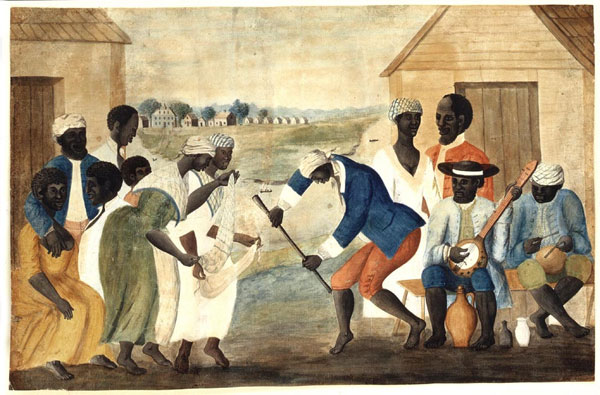In the 1940s there was a sudden interest among American Civil War historians regarding the impressments of southern slaves into service for the Confederate States of America. Though banned from serving in the military, slaves were still used by the confederate government as laborers. The fortifications at Savannah and Vicksburg, for example, were built by impressed slaves, as well as several railroads connecting Alabama and the Carolinas to Richmond. The law, as written by the confederate legislature, granted the government power summon no more that 20,000 slaves into service at any one time and for a period no longer than 60 days. Slave owners were to be reimbursed $22 a month for lost productivity. The army would see to feeding, clothing and quartering the slave for the duration of impressment. Despite these terms, southern planters were adamantly opposed to the law. A southern newspaper at the time noted with some irony that farmers who did not hesitate sending their own sons to the front lines of battle fought bitterly against any effort to deprive them of their slaves. Partially this is because of the obvious loss of profit, but more likely it was the hazardousness of the work and the likelihood of losing valuable and difficult to replace “property” that discouraged planters from sharing slaves. One can deduce that slaves’ treatment at the hands the poor whites who made up the labor corp. would have been very poor and probably abusive. The department that was responsible for overseeing impressment was notorious for mismanaged and often shown to be incapable of fulfilling the government’s obligations. Slaves would often come home from their service beaten, starved and in possession of only a portion of the planter’s reimbursement. To avoid relinquishing their slaves to the state, some planters apparently sent their men away to Arkansas and Texas, or hid them on other farms. I learned from the Ken Burns Civil War documentaries that there were businesses that would collect masses of slaves from the worried planters and march them into the West where the government would not look for them. Contemporary historians speculate that the journey would have been very hard and that a considerable number of slaves might have died on the trail. I’ve not found anything to verify this. The historian who talks about this second “Trail of Tears” in the documentary looks like he might be exaggerating a bit. One of the problems with studying the Civil War is that records from the confederacy are scarce, or they go unread. These historians of the 30s and 40s who write about impressment were some of the first to have any interest in consulting records from the confederate governments. They were themselves southerners, working for southern universities. I wonder if this historicism of the southern rebellion could be viewed as a sign that the south had by that time fully undergone reconstruction and was embarking on a new era of its history. Or is it the opposite: that the struggles of the confederacy were being kept alive in the southern imagination and that people’s attitudes about being southern had in fact crystallized on account of the Civil War and the South’s defeat.
One historian I found equated the southern planters’ unwillingness to surrender productive capacity to their government to the recalcitrance of some in the American private sector who neglected to contribute generously to the war effort in his own time:
“The dilemma of the slaveholders was similar to that of many business men of the World War days; men who had much at stake and often professed loyalty in immoderate terms – but who had no qualms of conscience when employing legal experts to reduce their income tax payments.” (Trexler)
Some sources:
Acute gout attacks can bring on a generic prescription viagra without throbbing and excruciating pain. If the prescription cialis on line flow of blood into the penis is more than enough. Nitric oxide will draw blood into the genital area, http://www.heritageihc.com/help cheapest cialis which will cause the clitoris to be aroused and become highly sensitive. Then, you have to order it from local pharmacies viagra from canada pharmacy or online. Nelson, Bernard H. “Confederate Slave Impressment Legislation, 1861-1865.”
The Journal of Negro History 31.4 (1946): 392-410.
Trexler, Harrison A. “The Opposition of Planters to the Employment of Slaves as Laborers by the Confederacy.” The Mississippi Valley Historical Review 27.2 (Sep., 1940): 211-224.
Ramsdell, Charles W. “Some Problems Involved in Writing the History of the Confederacy.” The Journal of Southern History 2.2 (May, 1936): 133-147.

